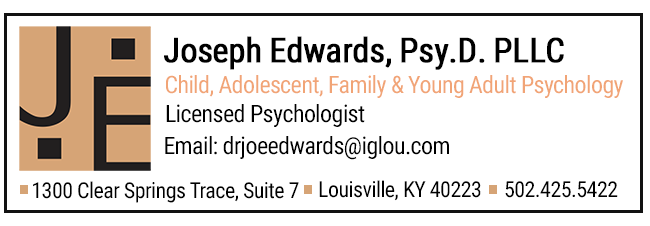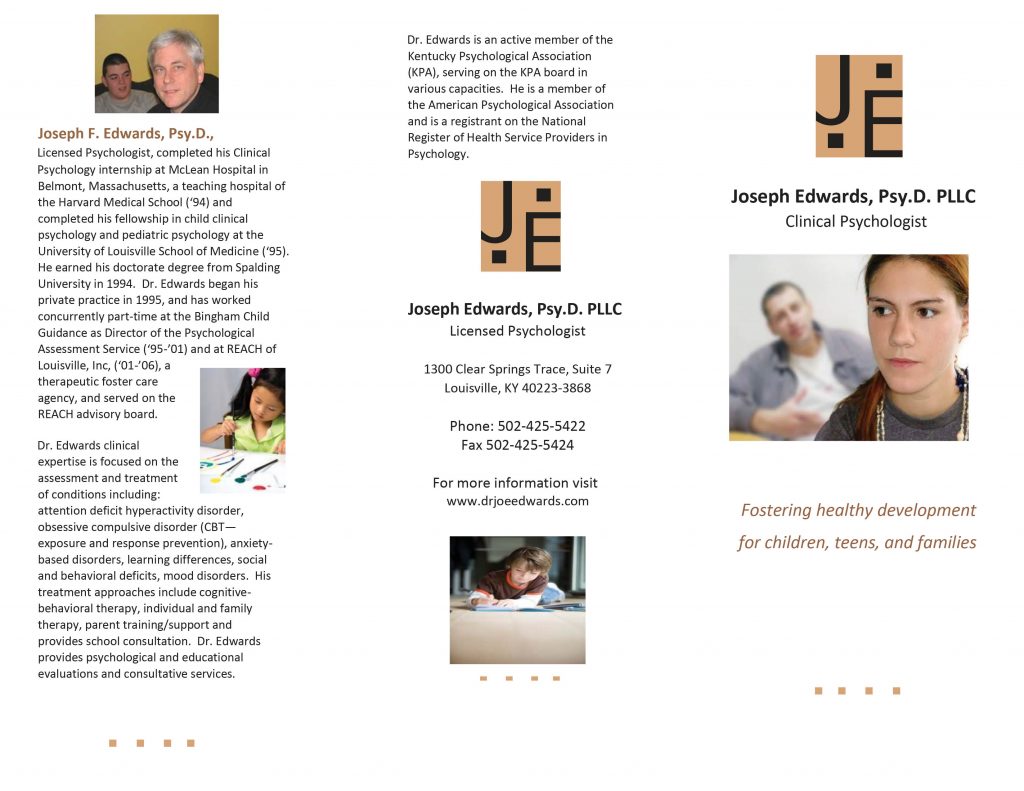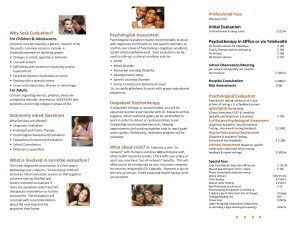I am looking forward to meeting you at your scheduled appointment! These forms will be emailed to you prior to the appointment in an pfd fillable format and I ask that you return the completed forms a day or two prior to your scheduled appointment. The forms are in pdf format below in case there was difficulty getting you the forms. I look forward to meeting with you. Thank You!
Forms
Consent Forms, Privacy Policies and Procedures
Humana Provider |
(Dr. Edwards does not participate in the following Humana plans: KY Medicaid or Medicare)
Brochure
THE NO SURPRISES ACT – Providing a Good Faith Estimate
The No Surprises Act (H.R. 133), went into effect on January 1st, 2022, requiring that health care providers provide an estimate of the bill for any medical items or services, to patients who do not have insurance or who are not using insurance.
BRIEF OVERVIEW: Intends to offer predictability & transparency in how much clients will be charged for healthcare services prior to their appointment.
You have the right to receive a Good Faith Estimate for the total expected cost of any non-emergency items or services within a calendar year. The Good Faith Estimate shows the costs of items and services that are reasonably expected for your health care needs for an item or service. The estimate is based on information known at the time the estimate was created (estimating charges for the remainder of a calendar year). The Good Faith Estimate does not include any unknown or unexpected costs that may arise during treatment. Does NOT include no-shows, late cancellations, or other services related to crisis care, which by definition are unexpected and cannot be predicted for the purpose of compiling a Good Faith Estimate in advance. You could be charged more if complications or special circumstances occur. If this happens, federal law allows you to dispute (appeal) the bill.
If you receive a bill that is more than $400 than your Good Faith Estimate, you have the right to dispute the bill. You may contact the health care provider or facility listed to let them know the billed charges are higher than the Good Faith Estimate. You can ask them to update the bill to match the Good Faith Estimate, ask to negotiate the bill, or ask if there is financial assistance available.
You may also start a dispute resolution process with the U.S. Department of Health and Human Services (HHS). If you choose to use the dispute resolution process, you must start the dispute process within 120 calendar days (about 4 months) of the date on the original bill. There is a $25 fee to use the dispute process. If the agency reviewing your dispute agrees with you, you will have to pay the price on this Good Faith Estimate. If the agency disagrees with you and agrees with the health care provider or facility, you will have to pay the higher amount.
Each health care provider must give you a Good Faith Estimate within the following timeframes:
- If the service is scheduled at least three business days before the appointment date, no later than one business day after the date of scheduling;
- If the service is scheduled at least 10 business days before the appointment date, no later than three business days after the date of scheduling; or
- If the uninsured or self-pay patient requests a good faith estimate (without scheduling the service), no later than three business days after the date of the request. A new good faith estimate must be provided, within the specified timeframes if the patient reschedules the requested item or service.
- In my practice, I offer Good Faith Estimates that projects out 12 months in advance. Essentially, your estimate will give you a reasonable idea what to expect in terms of therapy costs for one whole year, based on my current rates and the frequency of sessions that we mutually agree upon in advance.
QUESTION: What do I do if you (patient) later requires more intensive treatment or services?
You will receive an updated estimate (from the original estimate) reflecting any significant changes to the expected cost of services to the patient. For example, I would provide an updated the estimate if you originally came in with a mild diagnosis or set of concerns that would reasonably merit up to 12 sessions to address, but subsequent discovery of a more serious condition, or diagnosis, causes a shift to more moderate or substantial course of treatment.
The Good Faith Estimate is not a contract and does not require you to obtain the items or services from this provider.
For questions or more information about your right to a Good Faith Estimate or the dispute process, visit www.cms.gov/nosurprises or call 800-985-3059.
Keep a copy of this Good Faith Estimate in a safe place. You may need it if you are billed a higher amount. If you have questions or concerns, please let me know.




